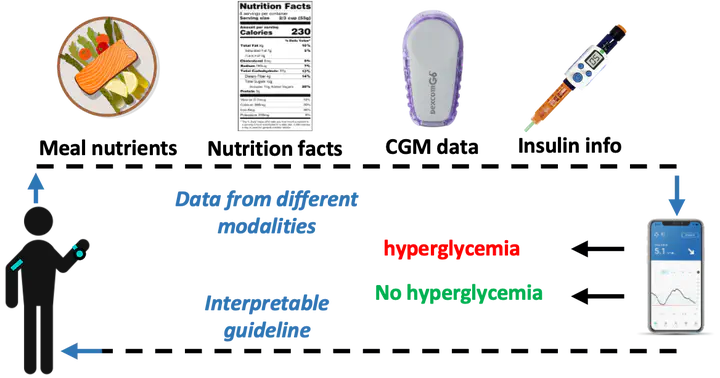
Abstract
Postprandial hyperglycemia (PPHG) is detrimental to health and increases risk of cardiovascular diseases, reduced eyesight, and life-threatening conditions like cancer. Detecting PPHG events before they occur can potentially help with providing early interventions. Prior research suggests that PPHG events can be predicted based on information about diet. However, such computational approaches (1) are data hungry requiring significant amounts of data for algorithm training; and (2) work as a black-box and lack interpretability, thus limiting the adoption of these technologies for use in clinical interventions. Motivated by these shortcomings, we propose, DietNudge, a machine learning based framework that integrates multi-modal data about diet, insulin, and blood glucose to predict PPHG events before they occur. Using data from patients with diabetes, we demonstrate that our model can predict PPHG events with up to 90% classification accuracy and an average F1 score of 0.93. The proposed decision-tree-based approach also identifies modifiable factors that contribute to an impending PPHG event while providing personalized thresholds to prevent such events. Our results suggest that we can develop simply, yet effective, computational algorithms that can be used as preventative mechanisms for diabetes and obesity management.